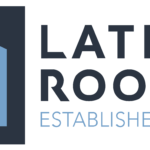Reboot Your Roof: Exploring Options for Financing a New Roof in Miami
Assessing Your Roof’s Condition: Why You Need a New Roof
As a homeowner in Miami, you’re no stranger to the challenges posed by intense sunshine, heavy rainfall, and strong winds. While your roof has withstood these elements for years, it’s essential to assess its current condition to determine if it’s time for a replacement. If you’ve noticed signs of damage, such as cracked tiles, curled shingles, or sagging eaves, it’s likely reaching the end of its lifespan. Ignoring these issues can lead to costly repairs and even safety hazards, making it a pressing need to replace your roof.
Changing Weather Patterns: How Miami’s Climate Affects Your Roof
Miami’s subtropical climate brings unique challenges for homeowners. The city’s coastal location makes it susceptible to hurricane-force winds, heavy rainfall, and intense solar radiation. These elements can quickly degrade your roof’s integrity, compromising its ability to protect your home and family. As a result, it’s crucial to consider the impact of Miami’s climate on your roof when planning for replacement or repair.
Rebooting Your Roof: Exploring Financing Options
If you’ve decided that a new roof is necessary, you’re likely wondering how to finance the project. With so many factors to consider, from materials to labor costs, it’s overwhelming to navigate the process on your own. Fortunately, there are various financing options available to help you reboot your roof. In this article, we’ll explore the most effective methods, including FHA 203(k) loans, Property Assessed Clean Energy (PACE) financing, and traditional bank financing.
The Pros and Cons of FHA 203(k) Loans
The Federal Housing Administration’s 203(k) loan program is a popular option for homeowners seeking to finance a new roof. This loan allows you to combine the cost of your roof replacement with other significant home renovations, such as installing solar panels or repairing foundation damage. Pros of FHA 203(k) loans include a low down payment of 3.5%, flexible lending terms, and the ability to finance up to $354,850. However, drawbacks include restrictive credit score requirements, MIPs (mortgage insurance premiums), and limited rebates of 10% of the loan amount.
The Benefits of PACE Financing
Property Assessed Clean Energy (PACE) financing is another viable option for Miami homeowners. This program enables property owners to fund energy-efficient upgrades, including roof replacements, through an annual property tax assessment. With a PACE loan, you can finance up to 100% of the project’s cost, with repayment terms tailored to your specific needs. The benefits of PACE financing include lower upfront costs, flexible repayment terms, and the potential for energy savings and a higher property value.
Exploring Traditional Bank Financing
Traditional bank financing is a well-established option for homeowners seeking to finance a new roof. Banks offer a range of products, including home equity loans, home improvement loans, and lines of credit. While interest rates and terms vary, traditional bank financing can provide a more predictable repayment schedule and lower interest rates than alternative options. However, you’ll need a good credit score, a significant down payment, and a clear understanding of your financial situation to qualify.
Conclusion: Rebooting Your Roof in Miami
In conclusion, rebooting your roof is a necessary step to ensure your home’s safety, comfort, and longevity. By exploring financing options, you can navigate the process with ease, whether it’s FHA 203(k) loans, PACE financing, or traditional bank financing. Remember to assess your roof’s condition, consider the impact of Miami’s climate, and weigh the pros and cons of each financing option. With the right strategy, you can reboot your roof and enjoy a more secure and energy-efficient living space.
Additional Tips and Resources
For more information on financing options and roof replacement, we recommend the following resources:
- Federal Housing Administration: 203(k) Loan Program
- Florida Department of Energy: Property Assessed Clean Energy (PACE) Program
- Local banks and lenders: Home Equity Loans and Home Improvement Loans
- Roofing associations: National Association of the Remodeling Industry (NARI) and the National Roofing Contractors Association (NRCA)
By exploring these resources and consulting with a financial advisor, you’ll be well-equipped to navigate the process of rebooting your roof and enjoying a more secure and energy-efficient living space in Miami. freeslots dinogame telegram营销




